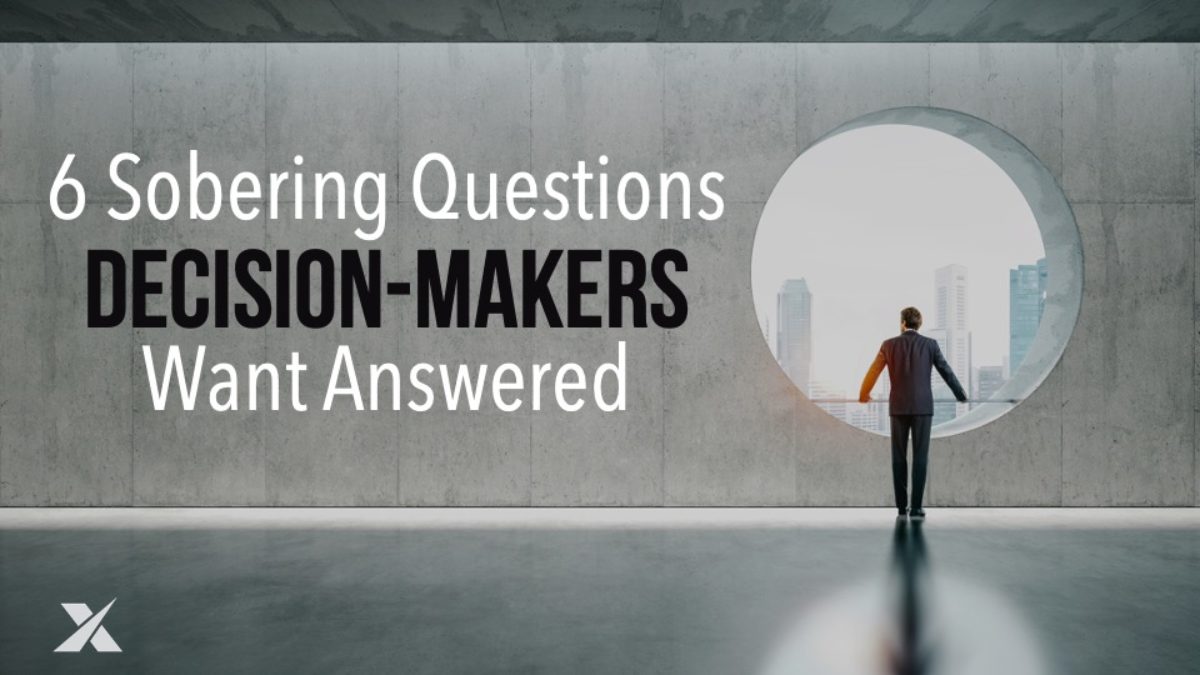What goes through your mind as you interact with a buyer? What do you think the buyer is thinking? The more you understand the buyer’s thoughts, the greater the opportunity to outsell your competition.
“What were you thinking?!” yelled my boss. He was a charming, cantankerous, brilliant entrepreneur and a bulldog of a sales manager, I can still hear his gruff voice shouting that question to me after a joint sales call. I didn’t get the sale, but I didn’t think I did that bad. I was wrong. For the next 20 minutes I got a play-by-play recap of how significantly I blew the sales call.
As difficult as it was to receive his drill sergeant-esque blasting of my performance (he called it coaching), that was one of the most valuable learning experiences I’ve ever had. The evidence was clear – I was thinking about myself and not the prospect during the entire sales call. My bosses words, tone, volume (complete with fist slamming on the desk) undergirded my newfound revelation.
So, instead of thinking about what I wanted during a sales call, my question turned to, What’s going on inside the buyers mind when interacting with a salesperson? I discovered they think about quite a lot of things, but essentially you can condense it down to six basic questions:
1. Will this solution make me more money?
The decision-maker evaluates your solution with: Is the investment of my organizations time, energy, resources and effort financially worth making a change? In some cases, it may not be, even if your solution is cheaper than the one they currently use. Communicating the total cost of ownership and the expected ROI will help you build your case.
Ask this question: What is your expected ROI for this initiative?
2. Is this vendor/solution the best choice from among my available options?
The decision-maker evaluates your solution with: What value differences do I see with this vendor that sets them apart from the others? This is why understanding the buyer’s perceptions of value play such an important role.
Ask value-based questions to gain differential insight such as: What are you looking for in a vendor? What do you want your vendor to do for you that you’re not getting now?
3. Will this solution improve efficiency?
If a buyer cannot keep up with customer demand because of inefficient processes and systems, then this becomes a priority. Leading with “we can save you money” does not resonate with them. Instead, saving them time and headaches would be of greater value. Ask them to define “improved efficiency” so you are clear about their expectations.
Ask these questions: What outcomes do you expect from implementing a solution like ours? What will make this solution the most advantageous for you?
4. Will this solution get us more customers or help retain the one’s I already have?
Paying customers are the lifeblood of a company. Your company does not pay you – your customers do. Business owners all over the world wish their employees really understood this.
As a sales professional, be mindful that this may be a top priority, so ask customer impact questions to help guide you: How will this affect your customer relations? How do you see this impacting your goal of increasing market share?
5. Will this solution lower my cost?
Yes, decision-makers are always conscious of operating costs, margins and taxable income. However, leading with low prices or relegating the sales call to merely a price-focused conversation undermines your potential credibility and that of your solution and company.
Instead, ask the buyer, Where do you rank “lowering costs” compared to customer retention and operational efficiency for this initiative?
6. Do I trust this person/company to meet my expectations?
All things being equal between you and your competitor, the sales rep with the greater level of displayed trust will have a competitive advantage. Be willing to have a trusted advisor, mentor, or coach give you honest feedback about your sales call.
Here are a few questions to ask yourself:
- What is my level of trustworthiness when interacting with a buyer?
- Do I communicate confidence?
- Am I a customer-focused, problem-solving advocate?
- Do I ask questions that help the buyer think or see their business in a new way?
Buyers think about many things during sales calls, but most can be categorized by these six questions. Depending on the decision-maker you’re talking to, the questions may be prioritized differently, but they’re still there. That’s why leading off a first meeting telling the decision-maker that you can save them money works against you – unless you have personal knowledge about their specific business. Period.
Develop this habit that successful salespeople do every day (which required an intense coaching session for me to learn): prior to your sales call, arm yourself with a set of well-crafted questions that cover these six areas and you’ll begin to gain the advantage over your competition.


